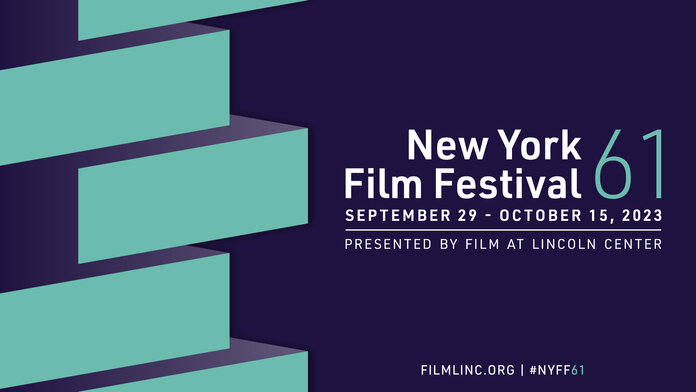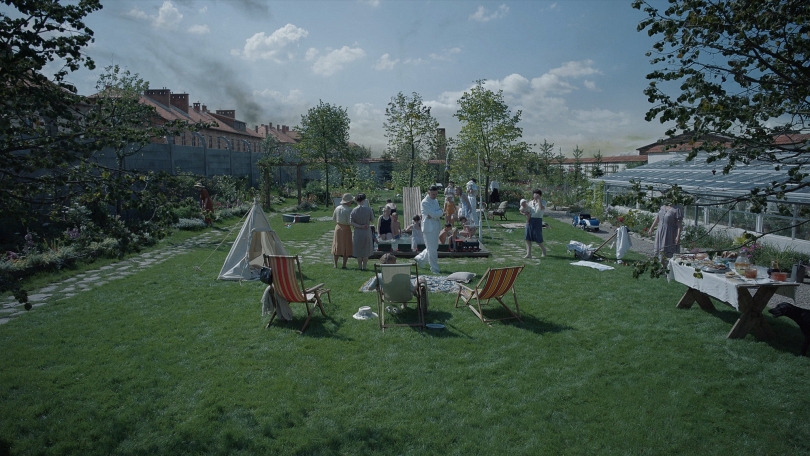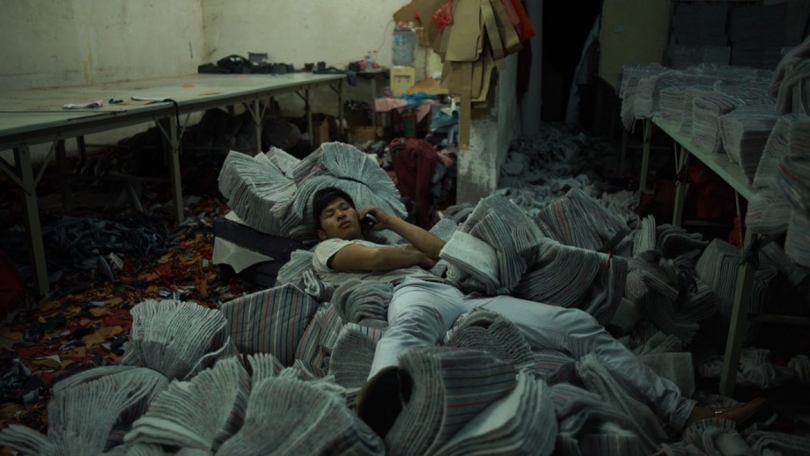|
|
||
|
Pro Tools
FILMFESTIVALS | 24/7 world wide coverageWelcome ! Enjoy the best of both worlds: Film & Festival News, exploring the best of the film festivals community. Launched in 1995, relentlessly connecting films to festivals, documenting and promoting festivals worldwide. Working on an upgrade soon. For collaboration, editorial contributions, or publicity, please send us an email here. User login |
New York Film Festival 61 (2023)
Established in 1963, the annual New York Film Festival (NYFF) has become one of the most important North American festivals by identifying innovative trends in global film making, developing a program of rising influential new American film makers, and selecting the best recent features from international film festivals. NYFF does not offer awards or prizes, their selection of films gives prestige to the filmmakers and producers, marking them as significant shapers of current and evolving film culture. The 61st edition of NYFF was held over 17 days from September 29 to October 15, 2023 and presented 32 features in the main slate of its program. A total number of 111 films from 45 countries were shown, including 67 features and 44 shorts, with 18 countries represented in the main slate. The US fielded 6 films, followed by 4 from France, 3 from South Korea, four from developing countries including China, and 6 international coproductions. This included 8 female filmmakers and 1 trans filmmaker. Four documentary features were part of the main slate. Exceptional new films of the main slate are the NYFF core. As in past editions, they are complemented by several other sections. SPOTLIGHT focused on the season’s 15 most anticipated significant features. The eleven CURRENTS selections emphasize new and innovative forms and voices. In the REVIVALS section, 11 digitally remastered works by renowned filmmakers were shown. SHORTS presented 9 films lasting 3 – 20 minutes and six Currents Programs from the Currents section. They, and some short productions, were paired with features from the main program. Though sometimes overlooked given the attention NYFF receives, the overarching Film at Lincoln Center (FLC) deserves praise for its activities. Founded in 1969 as a non-profit organization, it is part of the Lincoln Center for the Performing Arts celebrating cinema as an art form. In that capacity FLC supports and manages many activities ranging from running film theaters, sponsoring film festivals like the New Directors/ New Films and co-sponsoring a growing number of specialized film festivals like the Human Rights Festival. FLC engages in year-round film programming frequently at discounted fees. FLC is the home for the development of film culture for all audience groups. In that context it is not surprising that NYFF and FLC enjoy a growing number of commercial and public sponsors and partners. Among the NYFF 61 Partner Activation list renewals and sponsorships for 2023 were, to name but a few, Topic Studios for the Industry Program; MUBI for the Contents feature films; Turner Classic Movies for Revival presentations of some classic films; Campari for social events and consumer sweepstakes; HBO, a longtime partner, for documentary features; and Netflix for the original content series FLC Luminaries. Among numerous media partners are the New York Times, Variety, Hollywood Reporter, WNET Group, IndieWire, UNIFRANCE, and WABC 7. Public support was received this year from NY City and NY State agencies, and the National Endowment for the Arts. I selected two features for my review which premiered first at the 2023 Cannes film festival. Jonathan Glazer’s THE ZONE OF INTEREST about the private family life of Rudolf Hoess, the Auschwitz concentration camp commander and YOUTH (Spring), a 2023 documentary film by Wang Bing about young Chinese textile workers.
THE ZONE OF INTERTEST is a 2023 United Kingdom, US, and Poland co-production by the British director Jonathan Glazer. Glazer’s controversial portrayal of the family life of concentration Camp commander Rudolf Hoess, in charge of Auschwitz for three and a half years, his wife and their five children, received the Grand Prix at Cannes Film Festival 2023. The film is an extraordinarily realistic exploration of the Hoess family in a villa next to the wall bordering the concentration camp and its killing facilities. Christian Friedel as Rudolf Hoess and Sandra Hueller as his wife Hedwig Hoess provide compelling performances in their presentation of an ordinary private home life reinforced by their children playing games and doing homework. An audience expecting a senior Nazi boasting of his success as a mass murderer or a wife ecstatic about his crimes will be disappointed. At the Hoess home there is no discussion of his concentration camp activities. Rather, we observe a normal everyday life. Parties in the large garden of their home with very few uniforms in sight, family dinners, reading bedtime stories to their five children, a house well maintained by servants, Rudolf securing their house at nighttime, Hedwig tending the garden and plants, and having guests over. There are only a few clues to the crimes on the other side of the wall separating their home from the concentration camp. Hedwig wearing fur coats taken from arriving camp inmates, Hedwig looking for hidden items in these coats. Hedwig articulates Nazi slogans expressing hate for Polish people but there is no reference to Jews. Her son is playing with extracted gold teeth, a few gun shots can be heard during the night, and in daytime beyond the wall smoke from the extermination camp can be seen which Hedwig explains will be hidden with plants on her side. Hedwig articulates to her friends and family that she lives in paradise with a big home and a loving family, having all her needs taken care of. She outlines a great future in farming after the war. She points beyond the wall and mentions that what is there will disappear and that they will have an estate. Glazer reconstructed a villa identical to the one used by the Hoess family and furnished it the way it looked in the forties, thus providing a perfect background for most of the film. Numerous remote cameras were used in the house without artificial light and on the outside natural light prevailed .The director also kept the dialogue to a bare minimum, enhancing visual images. Only a few sequences display Hoess on an official trip, contemporary brief footage of the camp are inserted, and short discussions with his staff are shown. At home in The Zone of Interest, Hoess never refers to his work in the concentration camp. The film presents a successful happy Hoess family carrying on a normal life in the middle of the murder of millions and Hoess perfecting mass extermination. Glazer’s observational approach reinforced viewers detachment from the reality of death. THE ZONE OF INTEREST does not illustrate what happened after the war to the Hoess family. Hedwig Hoess maintained that she did not know about her husband’s work killing people in Auschwitz until a Nazi official told her. She reacted by stopping to share his bed. She survived the war and under duress revealed in 1946 where Hoess was hiding under a different name. She remarried and left for the US to live with one of her daughters and died there aged 81. Rudolf Hoess testified at the Nuremberg proceedings, was tried in Poland, and condemned to death. In the last weeks of his life, he wrote am autobiography describing his life and the SS senior officials he knew. He was hanged in Auschwitz in April 1947 when he was 46 years old. Several days before his execution, letters to wife and son showed some remorse, and he returned to his catholic faith and received the penance sacrament. Hedwig and Rudolf Hoess were early members of the Nazi party and married in 1929 after meeting at an anti-urbanization league which focused on the merits of farming.
Like THE ZONE OF INTEREST, YOUTH (SPRING) is an extraordinary film. The Chinese filmmaker Wang Bing directed this feature documentary as the first part of a nine-hour documentary chronicling cultural and socioeconomic factors impacting young migrants. They come from rural areas searching for jobs in the textile manufacturing towns near urban centers. His chronicle is part of a trilogy covering the same characters. YOUTH (SPRING) had its’ world premiere at Cannes Film Festival 2023, the third documentary ever shown at the Cannes Festival and the first in 20 years. It was co-produced by China, France, Luxemburg, and the Netherlands. Wang Bing’s observational power, devoid of any normative or political judgements, and his directorial and technical expertise brought Wang Bing universal acclaim. Distinct from other documentary film makers, he develops a solid personal understanding and intimacy of the subjects he covers. For YOUTH (SPRING) he lived several years in a nearby town and gained the confidence of local business operators. The textile manufacturing firms are highly competitive commercial enterprises producing mostly for local markets. While filming YOUTH (SPRING) over five years from 2014-2019, he worked with numerous filmmakers. They covered the large textile manufacturing town of Zhili, near Shanghai with several hand-held cameras. No one disturbed his crew when they were recording many hours of film in the young workers’ work and living spaces. This included sensitive personal information like abortions or negotiating higher pay for back breaking work in rundown conditions. The young people were at ease and not inhibited in most of their articulations about all aspects of their life. Aged from sixteen to early twenties, they live in large buildings in company owned dormitories often on top of the workshops employing them. Business and management offices, and storage facilities, are on the lower floors of the concrete multi-level buildings. Spaces for the workshops are small, poorly lit, and crowded with sewing machines where workers sew at a furious pace. They must produce as many pieces as possible because they are paid by batches of pieces finished. They are motivated by the dream of having their own homes, family, and workshops. Working as teams, they collectively argue with the workshop owners or operators for better compensation for the batches of pieces made. But as the documentary shows, these efforts frequently fail. As their managers point out, there are thousands of other young people roaming the streets looking for work and many competing mini textile manufacturers. In Zhili, where YOUTH (SPRING) was filmed, there were more than 18,000 textile workshops employing about 300,000 young seasonal workers who migrated to the town from rural areas. Before the pandemic started in late 2019, China was experiencing large GDP increases and consumer spending growth. Young people leaving rural areas to achieve a higher standard of living had become a taken for granted mantra. After all, by 2016, China’s GDP had become the fastest growing in the world largely thanks to President Deng Xiaoping’s economic reforms from 1978-89. His frequently quoted words “To get rich is glorious” reflected that for decades China had enjoyed stronger growth than the United Sates, Japan, and Europe. For Wang Bing, unbiased documentation of the socioeconomic shifts and their impact on young people remained essential. Though he could hardly have predicted what happened in China after he finished filming YOUTH (SPRING) in 2019. Over the last four years, the changes induced by the pandemic, in part due to the radically enforced zero covid policy, include a declining work force, lower birth rates, strengthening of the authoritarian government, and the slowing of economic growth. Wang Bing may reveal this new reality in the next two sections of YOUTH. The current youth unemployment is 23%, twice the rate it was in 2019. Chinese leaders now develop programs to prevent young people from leaving rural areas and to encourage those who did to return. Mass migration from rural to urban areas endangers the food supply, the growing number of unemployed or underemployed educated individuals generates instability, and the precarious nature of public retirement funding seems to be causing a shift of income from consumption to savings. Less textile products are bought. The reasonable expectation of a home and family by young people seems to be fading everywhere. Claus Mueller, New York filmexchange@gmail.com
15.11.2023 | Claus Mueller's blog Cat. : Documentary FILM FESTIVALS
|
LinksThe Bulletin Board > The Bulletin Board Blog Following News Interview with IFTA Chairman (AFM)
Interview with Cannes Marche du Film Director
Filmfestivals.com dailies live coverage from > Live from India
Useful links for the indies: > Big files transfer
+ SUBSCRIBE to the weekly Newsletter Deals+ Special offers and discounts from filmfestivals.com Selected fun offers
> Bonus Casino
About Claus MuellerThe EditorUser contributions |


























